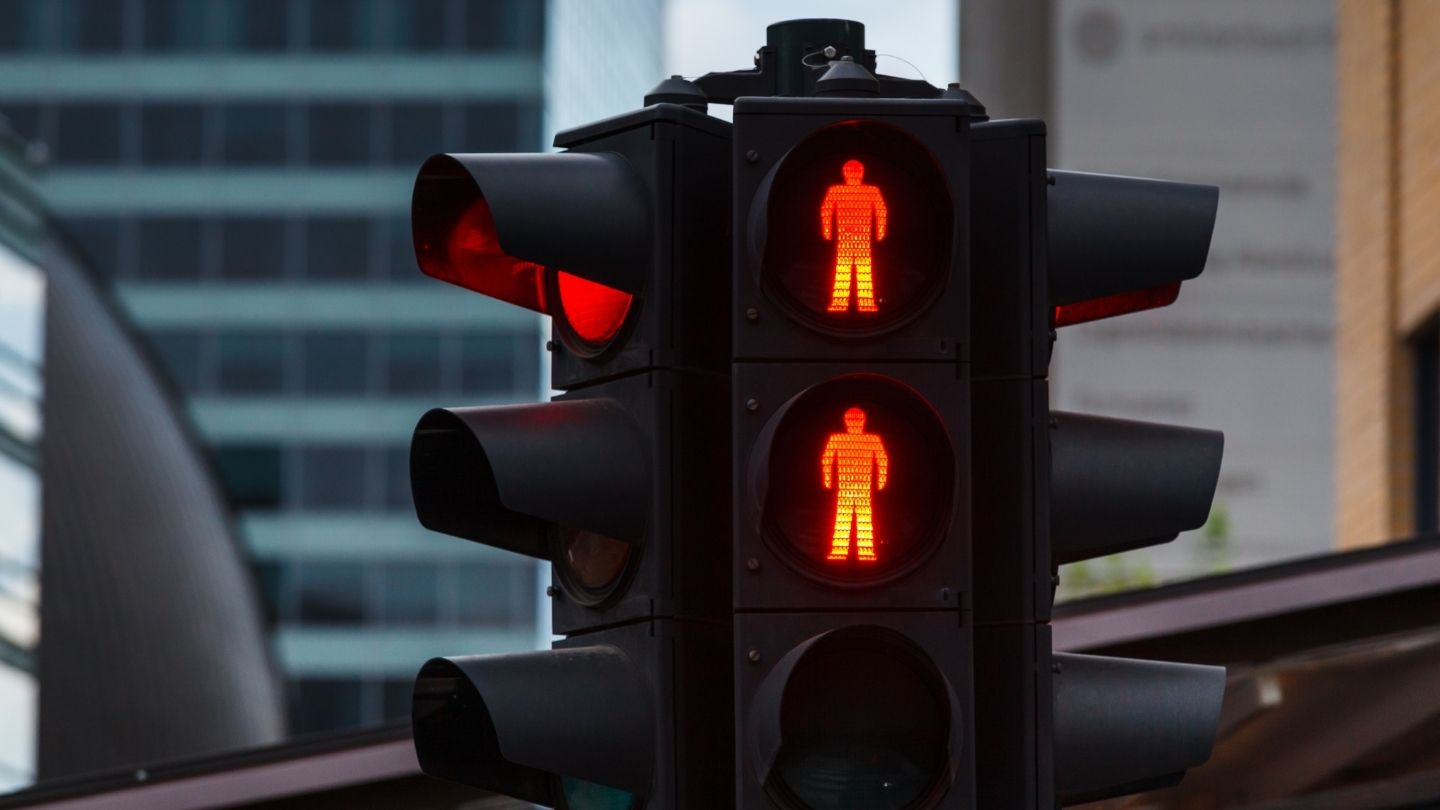Understanding the common traffic tickets in Texas can save you time, money, and legal trouble. In this article, we’ll discuss the five most frequent traffic violations: speeding, running a red light, driving without valid registration, using mobile devices while driving, and DUI/DWI. You’ll learn what each violation entails and how to manage them effectively.
Key Takeaways
- Speeding tickets are the most common traffic violations in Texas, categorized into Class C, B, and A misdemeanors, each with varying penalties and potential for license suspension.
- Defensive driving courses can help mitigate penalties for traffic violations, including ticket dismissal and reduced insurance premiums, by enhancing driving skills and knowledge.
- DUI/DWI violations carry severe consequences, including hefty fines, possible jail time, and license suspension, warranting proactive measures such as using designated drivers or ride-sharing services.
Speeding Tickets
In Texas, speeding stands out as one of the common traffic violations rigorously enforced by police forces. Encountering a ticket for such an offense carries substantial repercussions: hefty fines, accumulation of points on your driving record, and surges in insurance rates. For drivers intent on preserving an unblemished driving history, recurring instances of speeding could culminate in harsher ramifications like the suspension of their license. Participation in a state-sanctioned defensive driving course offers a viable strategy to prevent these penalties from impacting one’s record and may even result in having the ticket dismissed.
Traffic laws in Texas distinguish between different levels of speeding offenses by assigning them to various misdemeanor classes according to their gravity. Minor over-speeding incidents fall under Class C misdemeanors. Conversely, more serious cases may be elevated to Class B or A misdemeanor status. Being well-informed about these classifications, along with understanding possible consequences, is advantageous for drivers looking to adeptly manage any legal matters relating to road infractions they might encounter.
Class C Misdemeanor for Speeding
In the state of Texas, if you are caught speeding less than 10 mph above the speed limit, it typically results in a Class C misdemeanor citation. The highest penalty for such a ticket is $500. On average, fines hover around $236 for exceeding the speed limit by 10 mph. Fines can escalate beyond this average amount to about $265 when the infraction occurs within school zones. Although receiving one of these tickets won’t lead to incarceration, it does add points to your driving record, which could culminate in greater repercussions as they accumulate.
To avoid escalating insurance costs and other sanctions associated with accumulating points from violations like these, keeping your driving history spotless is essential. Should you be issued a speeding ticket that qualifies as a Class C misdemeanor offense, consider participating in a defensive driving course—this may enable you to have that particular violation dismissed, thereby preserving an untarnished driving record.
Class B and A Misdemeanor for Excessive Speeding
In Texas, driving at speeds exceeding the limit by more than 25 mph or engaging in reckless behavior on the road may lead to being charged with either a Class B or Class A misdemeanor. Such serious infractions can escalate penalties, which encompass substantial fines, accumulation of points against your driving record, and even possible incarceration. When faced with felony-level speeding charges, it is prudent to seek counsel from an experienced criminal defense attorney who can help you understand the complexities of your case and work towards reducing these consequences.
The repercussions of receiving a Class B or A misdemeanor go beyond immediate sanctions. They also bear long-lasting effects on both insurance premiums and one’s ability to retain full driving privileges. Recognizing the gravity of such violations is crucial for drivers, as is taking swift action—such as consulting legal advice—to address any issues that arise following these offenses effectively.
Running a Red Light

In Texas, inadvertently or deliberately running a red light is considered a major traffic violation and classified as an infraction that can incur considerable fines and add points to your driving record. The consequences of such actions highlight the critical need for vigilance and care when approaching intersections, given that just a few seconds’ lapse in attention could have significant repercussions.
Committing this offense can lead to enduring effects on both your driving record and insurance rates. Being aware of these potential long-term impacts should motivate drivers to exercise caution consistently to prevent such common yet serious traffic violations.
Fines and Points
In Texas, if you run a red light, expect to pay fines varying from $75 to upwards of $200, which varies by local jurisdiction. Being convicted of this offense adds two points to your driving record for a duration of three years. As these points accumulate, they may result in increased insurance premiums or even the suspension of your license.
It’s crucial to recognize these potential repercussions and take proactive measures against them. Participating in defensive driving courses can be beneficial as it might help lower the number of points on your driving record that are associated with a violation, like running a red light.
Impact on Insurance Rates
Receiving a citation for not stopping at a red light can lead to a substantial increase in your insurance premiums, sometimes escalating as much as 24% from just one infraction. This surge in cost may persist over an extended period, underscoring the importance of evading such violations and keeping your driving record unblemished. Citations related to traffic can leave enduring marks on your driving history.
Should you end up with a citation due to running through a red light, enrolling in and completing a defensive driving course swiftly could mitigate the repercussions on your insurance costs.
Driving Without Valid Registration
In Texas, it’s imperative to keep your vehicle registration up-to-date to stay within the bounds of state law and avert legal penalties. Neglecting to do so can lead not only to fines but also legal repercussions that may increase as time goes on.
It is essential for drivers in Texas to recognize the significance of renewing their registration promptly, thereby avoiding unwanted complications and financial burdens associated with such violations.
Expired Registration Penalties
Motorists operating vehicles with expired registrations could be subject to sanctions, which include escalating fines dependent on the duration since the registration lapsed. It’s crucial for drivers to ensure their vehicle registration remains current, as these costs can accumulate rapidly.
An expired registration may complicate related matters, potentially hindering the renewal process of your driver’s license or insurance coverage.
How to Renew Your Registration
In Texas, the procedure for updating your vehicle’s registration is simple and consists of several essential steps. Initially, it’s mandatory to get a state safety and emissions inspection conducted on your vehicle. Following a successful inspection, you have the option to renew your registration using online services, postal mail, or by visiting a local county office directly.
As part of the renewal process for your registration in Texas, presenting evidence that verifies both the completed vehicle inspection and active insurance coverage is necessary. This confirms compliance with roadworthiness standards and is a financial liability in case there are any accidents involving your automobile. Maintaining current records of these documents and ensuring timely renewal can assist you in steering clear of accruing fines and additional penalties associated with lapsed registrations.
Using Mobile Devices While Driving
Texas legislation takes the safety issue of mobile device use during driving very seriously. The law, effective from September 1, 2017, bans drivers in Texas from using handheld devices to text or make calls while operating a vehicle unless they employ hands-free technology.
Infringements on these regulations can result in hefty fines and additional penalties for offenders. These measures underscore the critical nature of compliance with these rules to ensure the well-being of all individuals on the road.
Texting and Driving
In Texas, engaging in texting while behind the wheel is not only illegal but also increases the risk of severe traffic incidents. Such distractions could result in crashing, veering off course, or inadvertently proceeding through a red light. If caught texting and driving for the first time, individuals may be subjected to monetary penalties between $25 and $99. Fines escalate with subsequent violations.
Emphasizing road safety should take precedence over merely evading financial penalties when it comes to refraining from text messaging while operating a vehicle. It’s crucial for ensuring both your protection and that of other motorists sharing the roadway. For those instances where communication is necessary during transit, drivers are encouraged to make use of hands-free devices.
Hands-Free Device Laws
While driving, it is allowable to use hands-free devices for navigation or making emergency calls, provided that the device does not require active handling. Utilizing your vehicle’s built-in infotainment system or a Bluetooth headset can thus facilitate mobile usage without breaching this stipulation.
In Texas, if you are found in breach of the hands-free law for the first time, you will be subject to a fine of $99. This highlights how critical it is to comply with these safety directives while operating a vehicle.
Read More: Decoding Texas Traffic Ticket Laws
DUI/DWI Violations

In Texas, motorists who commit traffic offenses such as Driving under the influence (DUI) or driving while intoxicated (DWI) face severe consequences, including substantial fines, the potential for jail time, and suspension of their license. These penalties aim to discourage such violations and enhance public safety by deterring individuals from driving under the influence.
Penalties for First-Time Offenders
In Texas, a first-time DWI offense is considered a Class ‘B’ misdemeanor. Those found guilty could be subject to penalties, including fines up to $2,000, which can rise to as much as $3,000 in certain instances. Individuals may receive a jail sentence of up to 180 days and face at least three months of license suspension.
These stringent penalties underscore the critical nature of refraining from driving while under the influence. By opting for alternatives like securing a designated driver or utilizing ride-sharing services, you can steer clear of these severe repercussions.
Repeat Offenses
In Texas, the consequences of subsequent DWI offenses become significantly more severe. A second offense could lead to penalties such as a maximum fine of $6,000, incarceration for up to a year, and the mandatory installation of an ignition interlock device on one’s vehicle. When a first-time offender is caught with a blood alcohol concentration at or above 15, this elevates the transgression to a Class ‘A’ misdemeanor, which can carry fines reaching $4,000 and include jail time that may extend for up to twelve months.
Upon committing a third DWI offense in Texas, it escalates into a third-degree felony. Sanctions can be quite substantial, including prison sentences ranging between two and ten years coupled with fines that might amount to up to $10,000. The cumulative effect of repeat DUI violations manifests through ever-increasing punitive measures encompassing extended durations behind bars and significant monetary penalties.
Defensive Driving Courses

Defensive driving courses present a significant chance for motorists to enhance their driving abilities while also possibly lessening the impact of traffic violations. These programs teach critical subjects, including how to recognize potential hazards and methods for preventing accidents, thus advancing driver proficiency and contributing to the overall safety of the public.
Benefits of Defensive Driving Courses
Enrolling in a defensive driving course offers multiple advantages for Texas drivers. Here’s a quick overview of the benefits:
- Ticket Dismissal: Completing a defensive driving course can lead to the dismissal of certain minor traffic violations, helping you maintain a clean driving record.
- Insurance Savings: Participants may enjoy a reduction in insurance premiums by 10% to 30%, providing significant financial savings.
- Affordable and Convenient: With a cost of around $25 and a duration of approximately six hours, the course is both cost-effective and accessible.
- Certification: Upon successful completion, you’ll receive two certificates—one for court use and another for insurance purposes, demonstrating your improved driving skills and adherence to state regulations.
Taking a defensive driving course not only equips you with essential driving skills but also offers tangible financial benefits, making it a wise choice for any driver looking to enhance their road safety and manage their driving record effectively.
Eligibility and Enrollment
Reach out to the court in charge of your citation to ascertain if you are eligible for dismissing your ticket through a defensive driving course. The court will inform you about qualifying for such a program. In most cases, Texas law permits drivers to partake in a defensive driving class for this purpose once every year. Typically, completion of an accredited state-approved course is essential for nullifying traffic tickets within the state.
The program offered by the Texas Defensive Driving Course is designed with convenience in mind. It’s self-paced, and participants can begin or halt their training at any point, allowing them to finish the curriculum based on their own schedule.
Individuals may also want to explore opting for a deferred disposition concerning misdemeanors classified as Class C or B. This alternative involves settling a fee with the court and steering clear of additional infractions over a specified probationary term.
How to Contest a Traffic Ticket
In Texas, you can either pay a traffic ticket or contest it in court. Consider the context and evidence before deciding. Completing a defensive driving course can help reduce points on your record.
Pleading Not Guilty
To contest a ticket, plead not guilty within 10-15 days. Court appearances may lead to reduced fines or penalties. Successfully contesting a ticket can keep your driving record clean. Remember that pleading guilty or no contest means paying fines and fees. Weigh the costs of hiring an attorney and other expenses before deciding.
Hiring an Attorney
An attorney can be crucial when fighting a ticket. They can analyze evidence, challenge charges, and aim for reduced penalties or dismissal. Their expertise can improve your chances in court.
Summary
Dealing with traffic tickets in Texas can be daunting, but understanding common infractions and responses is key. From speeding and ignoring red lights to driving without proper registration or using mobile devices, each offense carries specific penalties. Participating in defensive driving courses can effectively reduce these penalties and enhance your driving skills. By staying proactive and informed about road rules, you can maintain a spotless driving record, promoting safer travel for everyone.
At Court Approved Defensive Driving, we are committed to helping you navigate the complexities of traffic violations. Our online Texas defensive driving course is tailored to provide you with the knowledge and skills necessary to manage these challenges effectively. With our convenient online platform, you can learn at your own pace, ensuring you stay up-to-date with the latest road safety practices. By choosing us, you not only work towards dismissing tickets and reducing insurance premiums but also contribute to a safer driving community. Contact us today to get started and take the first step towards safer driving!
Frequently Asked Questions
What is the most common traffic ticket in Texas?
The most common traffic ticket in Texas is for speeding. This violation often results in fines, points on your driving record, and increased insurance rates.
How can I check my traffic tickets in Texas?
You can check your traffic tickets in Texas by visiting the official Texas Department of Public Safety website or contacting the court in the jurisdiction where you received the ticket.
How long do traffic tickets stay on your record in Texas?
Traffic tickets typically remain on your driving record in Texas for three years from the date of conviction. However, this can vary depending on the severity of the violation.



